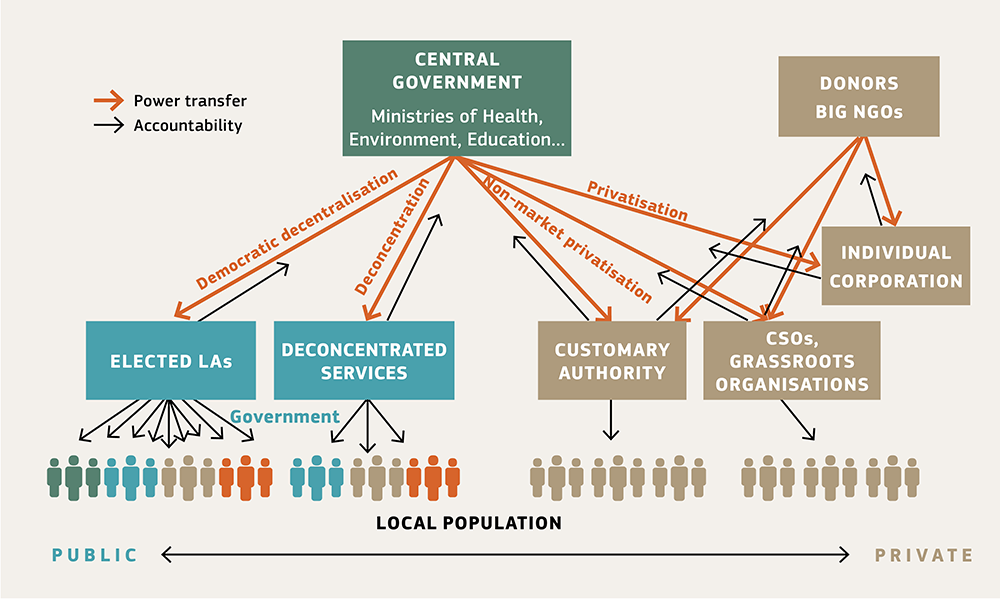2.5 The impact of donor support on local democracy
In the public-private spectrum of decentralisation, the choice of donors for channelling their support shapes the local political landscape:

Historically, donors (and UE) have use two ways to channel their support: national governments, agencies and ministries on one side, and Civil Society (NGOs…on the other side). By by-passing local authorities we have paid a double price: not promoting Local development, and not promoting democracy.
The recognition of local institutions or authorities confers power and legitimacy, and cultivates identities and forms of belonging associated with these local institutions.
|
||||
RepresentationDemocratic representation is in place when leaders are both accountable and responsible to the people. |
BelongingDifferent authorities authorize different forms of belonging. Residency-based citizenship is an inclusive form of belonging associated with democratic authorities. In private groups and NGOs, belonging is narrower, based on interest. In customary and religious institutions, membership is often based on identity - such as ethnicity, place of origin, language, or religion. |
Public domainEven when democratic authorities exist, there is no democratic space if those authorities wield no public power-there is no “public domain” (material space for public interaction) for citizens to engage in and to which they can belong. |
||
The interventions you make strengthen or weaken local democracy. Be sure you are on the strengthening side!
When donors choose parallel authorities they contribute to de-legitimate LAs. Transferring public powers to parallel authorities in the local arena can take powers away from, and produce competition with, democratic LAs. Such competition can undermine the legitimacy of LAs or can produce a pluralism of cooperation that helps to establish and thicken the links between CSO and LAs.
To support local democracy means choosing the right institutions and endowing them with the appropriate powers. The local governments are the institutionalized form of participation and representation that we need to support.
|
Select the right local institutional partners – work through elected local government |
||||
|
Make sure these accountability measures are accessible to all local people |
To support local democracy be certain to choose democracy |
Be sure that these institutions exercise appropriate and sufficient discretionary public powers |
||
|
Make sure that, in addition to elections, there are multiple accountability measures available to citizens |
||||
|
To go further... watch this
|
